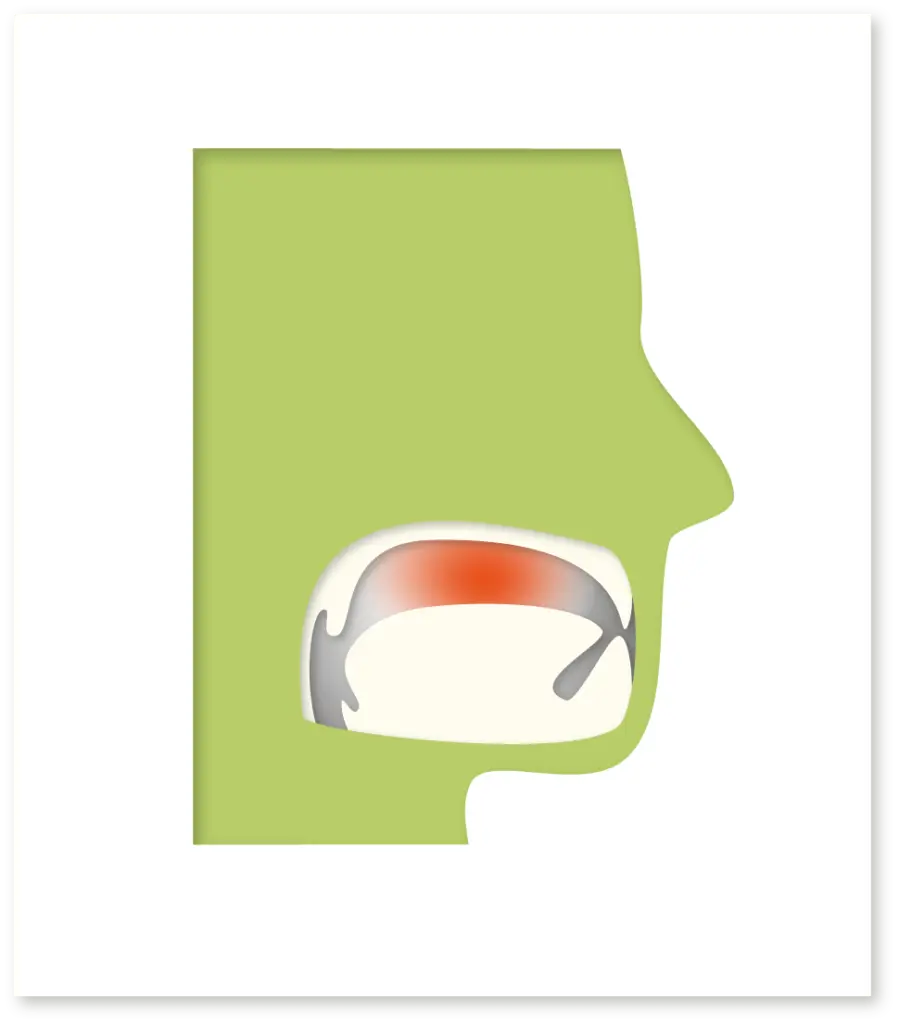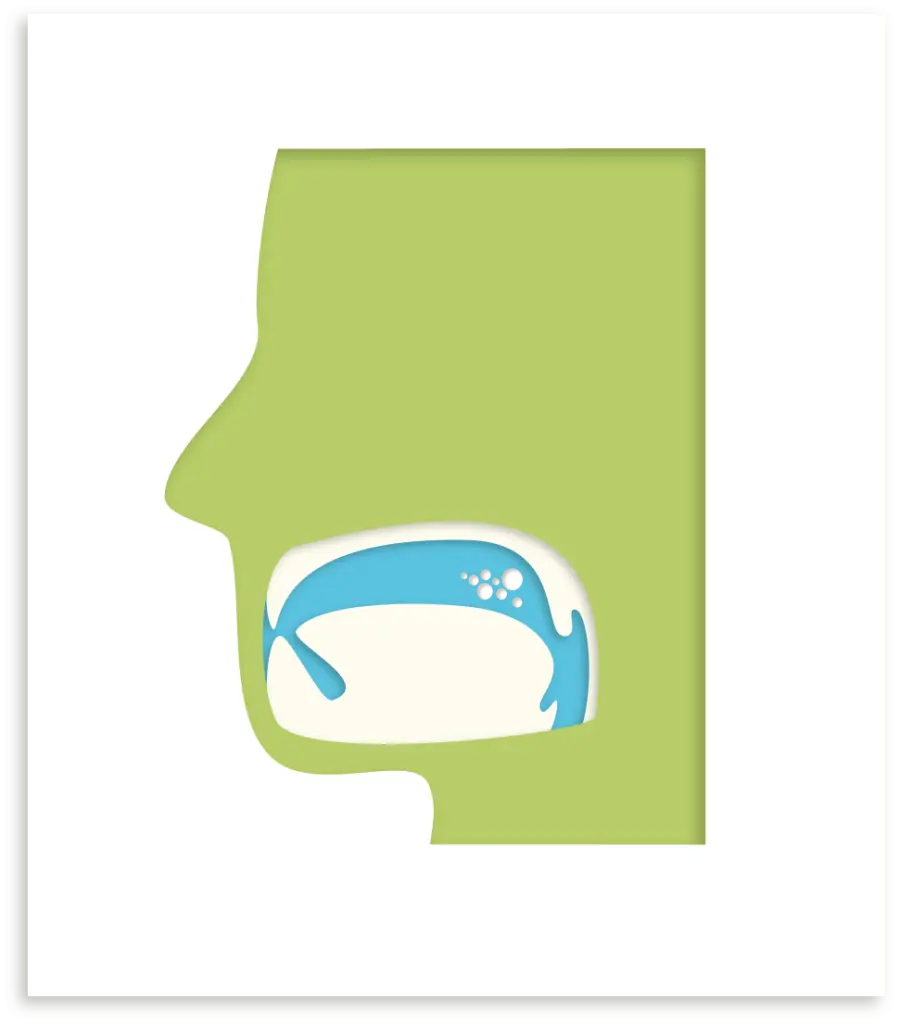A great discomfort that affects so many people for various causes and that causes serious damages


Drugs such as:
Antihistamines
Chemotherapeutics
NSAIDs
Anti-diarrheal medication
Antidiabetic medication
Diuretics
Antidepressants
Antipsychotics
Radiation therapy
Pathologies as:
Diabetes
Parkinson’s disease
Psychotic status
Depression
Sjögren’s syndrome
E-cigarettes
Aging
Dry oral mucosa Halitosis (bad breath)
Cracked and chapped lips
Dental Caries
Altered taste
Oral bacterial infection
Sore throat
Aphthae (canker sores)

Xerostomia is the feeling of having a dry mouth. It is due to reduced or absent saliva production.
Saliva is a fundamental element of our organism; it serves to lubricate the mouth to prevent inflammation, cracks in the mucous membranes and to prevent and fight bacterial infections of the oral cavity.
Saliva is a fluid that moisturizes the surface of the oral cavity and is produced by glands in the mouth. It contains several substances that have a variety of functions such as digestive enzymes, lubricating substances and substances that combat potentially harmful microorganisms.
Saliva is produced both constitutively, without the need for any stimuli, as well as in response to stimuli that are generated in the oral cavity upon intake of food or beverages, or in response to stimuli such taste, smell, anxiety or depression.
Does not alter the oral microbiome, respecting the natural bacterial flora.
Increases salivation and regulates oral pH without the use of pharmacological substances
The saliva produced is completely similar to natural saliva, as proven by proteomics studies
Salifluss® stems from a simple observation: saliva is composed of 3500 proteins, saliva substitutes can never restore this, thus the only way to overcome the problem is to increase the endogenous saliva production.
Saliva plays a crucial role in washing away food particles and neutralizing acids. Without enough saliva, there’s a higher risk of cavities and gum problems.
Conditions like thrush (oral yeast infection) can develop in a dry environment.
A dry mouth makes it harder to speak clearly and can also cause trouble swallowing, which can affect nutrition.
Lack of saliva can lead to unpleasant odors due to bacteria buildup.
Xerostomia can affect the ability to taste food properly, leading to loss of appetite or malnutrition.
Chronic dry mouth can cause irritation and sores inside the mouth, leading to discomfort and pain.
In people with dentures, xerostomia can make it difficult to wear them comfortably due to reduced saliva.
Difficulty in chewing, swallowing, and tasting food can reduce appetite, leading to poor nutrition and even dehydration. This can be especially problematic in elderly or vulnerable individuals who may already have difficulty maintaining proper nutrition.
A lack of saliva weakens the body’s first line of defense against pathogens in the mouth, increasing the risk of systemic infections. In severe cases, untreated oral infections can spread, affecting other organs.
Saliva is essential for the initial stages of digestion, particularly in breaking down starches and fats. Inadequate saliva production can disrupt digestion, leading to gastrointestinal discomfort or malabsorption of nutrients.
Untreated oral infections and gum disease can lead to chronic systemic inflammation, which has been linked to conditions such as cardiovascular disease, diabetes, and autoimmune disorders.
Persistent discomfort and social embarrassment from dry mouth (due to bad breath, difficulty speaking, etc.) can contribute to anxiety, depression, or reduced quality of life, especially when it affects eating or communication.
Severe xerostomia, especially at night, can disrupt sleep patterns, leading to fatigue, irritability, and cognitive impairments during the day.